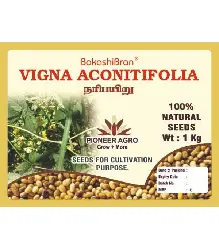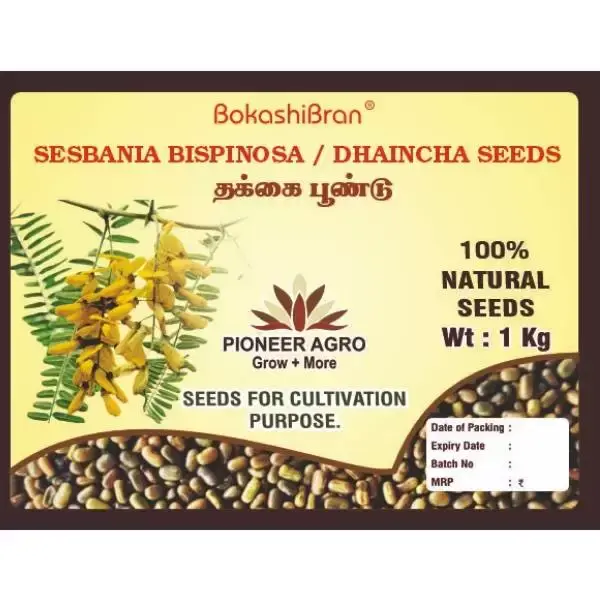Description
White Wild Indigo, or Baptisia alba, a native North American plant, can be cultivated from seeds. Follow these steps for White Wild Indigo seed farming:
Seed Collection:
– Harvest seeds from mature plants when the seed pods have dried and turned brown, typically in late summer or early fall.
– Collect seeds by cutting the seed pods from the plant.
Seed Preparation:
– Clean seeds by removing chaff or debris.
– Stratify seeds by placing them in a plastic bag with a moistened substrate (like sand or peat moss) and refrigerating for a few weeks, mimicking winter conditions for improved germination rates.
Planting:
– Plant White Wild Indigo seeds directly in the garden in fall or spring, with fall planting often recommended for a natural stratification period.
– Prepare a well-draining soil bed with organic matter.
– Sow seeds at a depth of about 1/4 inch.
Germination:
– Germination may take several weeks to a few months.
– Keep the soil consistently moist but not waterlogged during germination.
Transplanting:
– Transplant seedlings to their final growing location once large enough, spacing them according to the plant’s mature size.
Care:
– White Wild Indigo prefers full sun to partial shade and well-draining soil.
– Water young plants regularly until established, as they become generally drought-tolerant.
– Mulching helps conserve moisture and control weeds.
Maintenance:
– White Wild Indigo, a hardy perennial, requires minimal maintenance once established.
– Deadhead spent flowers to encourage more blooms and prevent self-seeding if desired.
As with any native plant species, check local regulations for seed collection and cultivation. For those interested in White Wild Indigo seeds, consider exploring options to buy White Wild Indigo seeds online. Additionally, for alternatives like White Sarphonk seeds and White Sharpunkha seeds, you can find them online as well. Check the seeds price for informed choices and ensure genetic diversity by obtaining seeds from reputable sources specializing in native plants, including White Kolinchi seeds.










